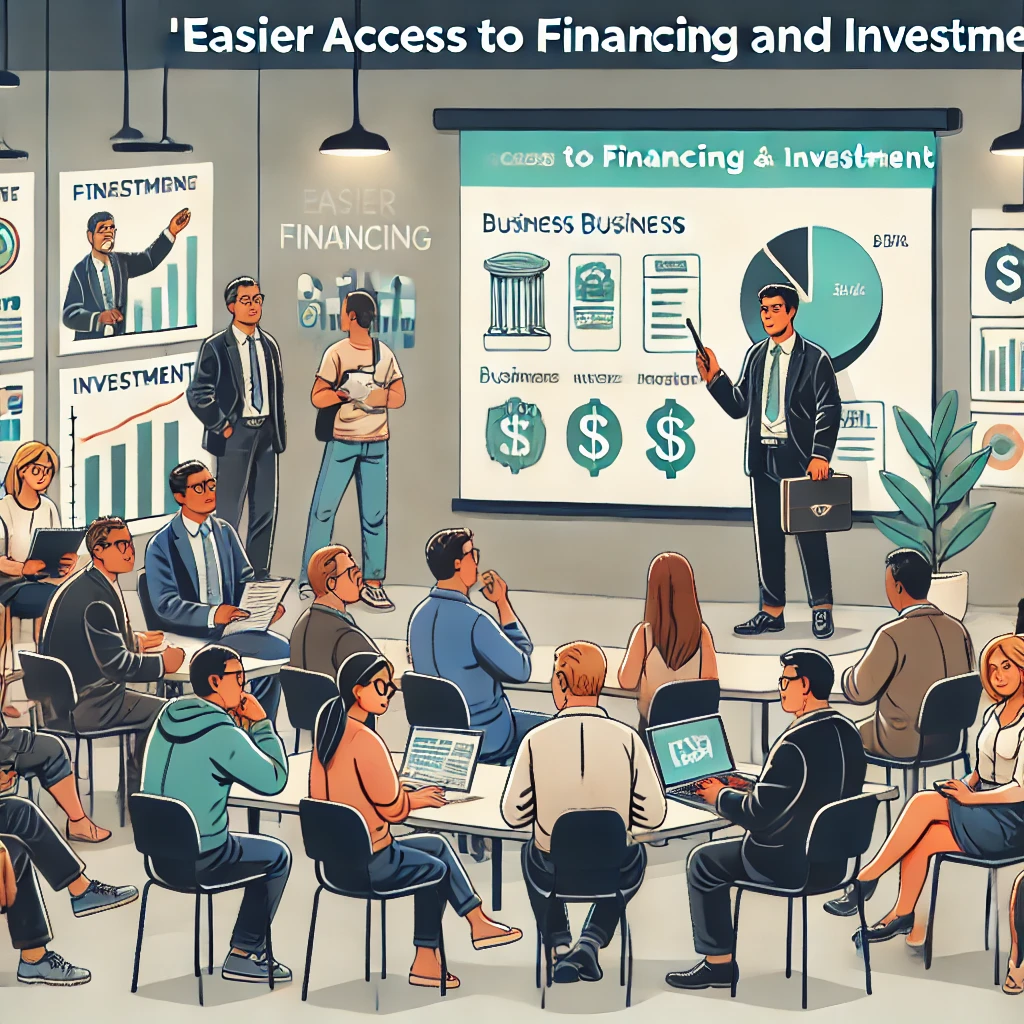5 Reasons to Buy an Existing Business
Buying an existing business can be one of the smartest investment decisions an entrepreneur can make. Instead of building a company from the ground up, purchasing a well-established business provides immediate operational advantages, financial stability, and a proven track record of success. While launching a startup comes with uncertainty and high risk, buying an existing business can offer a faster path to profitability and long-term sustainability. Below are five compelling reasons why acquiring an established business is a strategic move for investors and entrepreneurs alike.
Table of Contents
ToggleImmediate Cash Flow and Profitability

One of the biggest advantages of acquiring an established business is that it is already generating revenue. Unlike startups, which often require years of investment before turning a profit, an existing business has an operational structure in place, a steady customer base, and revenue streams that provide immediate cash flow. This means that from day one, you can focus on optimizing and expanding the business rather than struggling to break even.
Additionally, financial records of an existing business offer clear insights into revenue trends, expenses, and profitability, allowing you to make data-driven decisions. You can analyze past performance, identify areas for improvement, and implement strategic growth initiatives without the burden of unpredictable startup costs.
Buying a business allows you to step into a functioning operation that provides a return on investment from day one, reducing financial risk compared to starting a business from scratch.
Established Brand and Customer Base
One of the most challenging aspects of starting a business is building brand recognition and acquiring customers. It takes time and significant marketing investment to establish trust and credibility in a competitive market. When you purchase an existing business, you inherit a well-known brand, an established reputation, and a loyal customer base that has already demonstrated demand for the product or service.
An established customer base means you don’t have to spend excessive resources on customer acquisition. Instead, you can focus on strengthening relationships, improving customer service, and expanding into new markets. Loyal customers provide recurring revenue and referrals, which are critical for long-term business growth.
With an established reputation and a loyal customer base, you can focus on growth and expansion rather than building a brand from scratch.
Easier Access to Financing and Investment

Securing funding for a startup can be challenging, as lenders and investors perceive them as high-risk ventures. New businesses lack a financial history, making it difficult to prove their viability and attract capital. However, purchasing an existing business with a track record of profitability significantly improves your chances of obtaining financing.
Banks and financial institutions are more likely to approve loans for businesses that have consistent revenue, operational stability, and tangible assets. Additionally, investors may be more inclined to fund an acquisition rather than a startup because they can assess historical performance and forecast potential returns.
Moreover, sellers may offer financing options such as owner financing, which allows buyers to pay for the business over time rather than securing a traditional loan. This flexibility in financing makes buying an existing business a more feasible and attractive investment.
Purchasing an established business improves your ability to secure financial backing, reducing the capital challenges associated with launching a startup.
Trained Employees and Operational Systems in Place
Building a business from scratch requires hiring, training, and managing a team while simultaneously developing operational processes. This can be overwhelming and time-consuming, especially for first-time business owners. However, when you buy an existing business, you inherit a trained workforce, established procedures, and proven business systems that contribute to smooth operations.
Experienced employees bring valuable industry knowledge, operational expertise, and customer service skills, allowing for a seamless transition. Additionally, existing vendor and supplier relationships ensure continuity in the supply chain and minimize disruptions.
The presence of established business systems—such as inventory management, accounting procedures, and sales strategies—reduces the learning curve and operational inefficiencies. Instead of spending months or years developing workflows, you can focus on improving and scaling the business.
Having an experienced team and proven operational systems in place ensures a smoother transition and immediate productivity, saving time and reducing the challenges associated with starting a business from scratch.
Lower Risk Compared to Starting a Business
Startups have a high failure rate due to market uncertainty, lack of funding, and operational inefficiencies. According to various studies, nearly 50% of small businesses fail within the first five years. The risks associated with launching a new business—such as miscalculating market demand, underestimating costs, and struggling with cash flow—can be daunting.
By acquiring an existing business, you mitigate many of these risks. You have access to historical financial data, a proven business model, and established market demand. This allows you to make informed decisions and implement strategic improvements without the uncertainty of starting from scratch.
Furthermore, existing businesses often come with a built-in support system, including key personnel, supplier relationships, and customer contracts, which provide a stable foundation for continued success. When buying a business, due diligence is essential to ensure that it aligns with your investment goals and risk tolerance.
With a history of performance, an existing business offers greater stability and predictability, making it a less risky investment compared to launching a new venture.
Conclusion
While starting a business from scratch may appeal to some entrepreneurs, acquiring an existing business provides a multitude of advantages, including immediate cash flow, an established customer base, easier financing, a trained workforce, and reduced risk. By purchasing a business with a proven track record, you gain a competitive edge and a faster path to success.
Before making a purchase, conducting thorough due diligence is crucial. Evaluate the financial health of the business, assess market conditions, and develop a transition plan to ensure a smooth takeover. Whether you’re an experienced investor or a first-time entrepreneur, buying an existing business can be a smart and strategic decision that leads to long-term profitability and growth.
Looking for Expert Guidance?
If you’re interested in exploring business acquisition opportunities, our team at Summit Commercial Group is here to help. With extensive experience in business sales and acquisitions, we can guide you through the entire process, from identifying opportunities to closing the deal. Contact us today at 502-536-7315 or raphael@sumcg.com to discuss available opportunities and take the next step toward business ownership.

